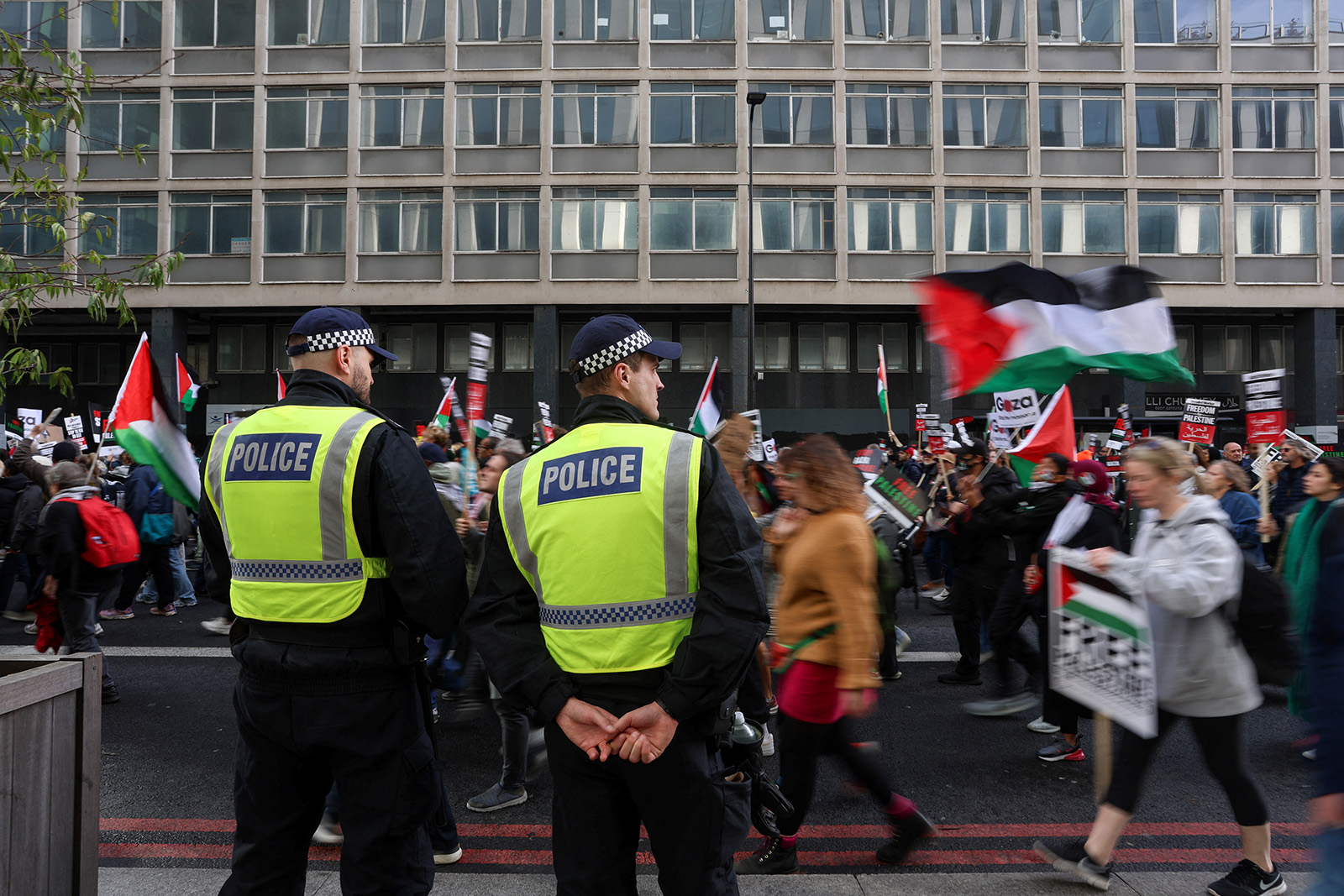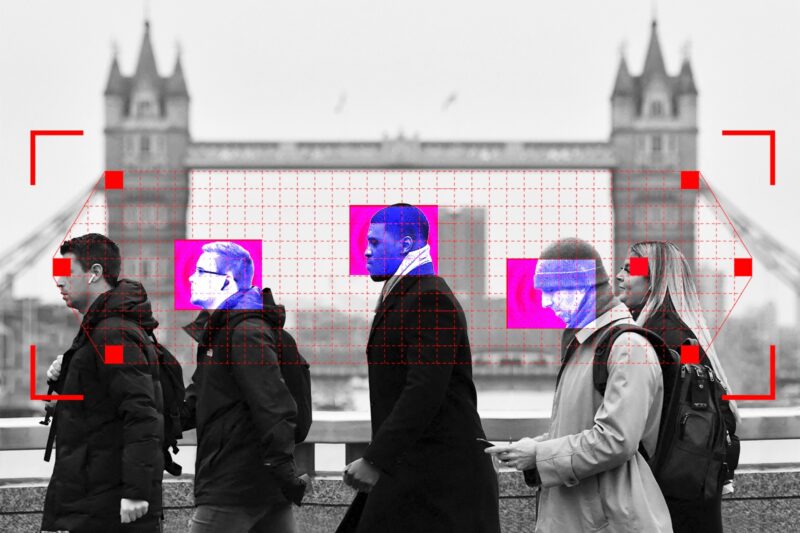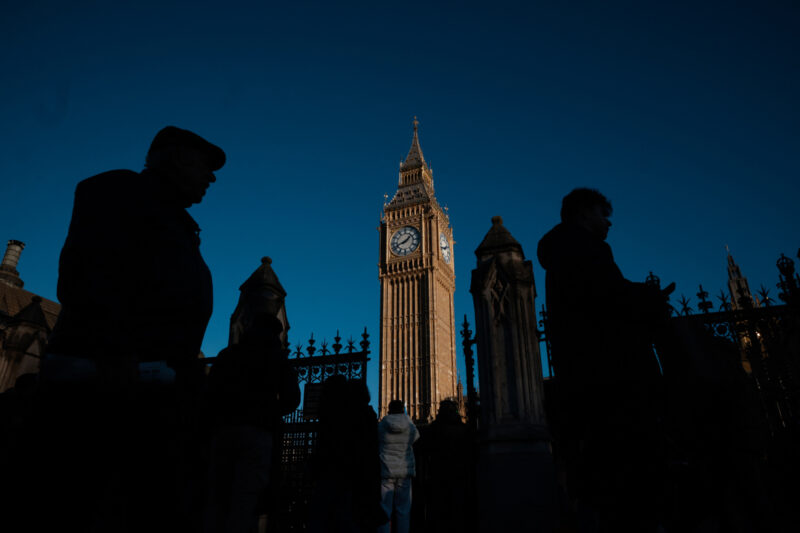Revealed: ‘Islamist’ referrals to Prevent surged by 45% in wake of 7 October
Increase in caseload of UK counter-terrorism strategy comes amid warning that pro-Palestine protest is being criminalised and children targeted

Referrals to the government’s counter-terrorism scheme Prevent over “Islamist” concerns surged by 45% in the wake of the 7 October attacks, with the largest proportion of those for children aged 11 to 15, figures released on Thursday show.
For the period from 7 October 2023 to 31 March 2024, a total of 526 referrals were made to Prevent under the category of “Islamist”, compared with 387 for the period 1 April 2023 to 6 October 2023.
The figures, released by the Home Office, do not reveal on what grounds referrals were made beyond headline categories such as “Islamist”, “incel” and “extreme right-wing ideology” — which remained the most common referral reason. But the uptick in “Islamist” referrals comes amid fears that pro-Palestine sentiment is being criminalised by public bodies.
Metropolitan police assistant commissioner Matt Jukes claimed in December last year that calls by the public to the anti-terrorism hotline had doubled after Hamas’s 7 October attack and Israel’s subsequent campaign of bombardment against Gaza. Jukes also said there had been a 12-fold increase in referrals about extremism online and a 25% increase in counter-terror intelligence.
Prevent is the UK government’s counter-terrorism strategy to stop individuals from becoming involved in or supporting terrorism. But human rights organisations have long accused the programme of disproportionately targeting Muslim communities and curbing political expression, particularly in educational settings.
Analysis by Hyphen has found there were on average just over two referrals with an “Islamist” concern each day from 1 April 2023 to 6 October 2023, and just under three each day from 7 October 2023 until 31 March 2024.
The term “Islamist” is controversial. The London-based Centre for Media Monitoring has criticised its use to refer to violent extremists, saying it suggests “that there is something inherently terroristic about Islam and Muslims”.
Of the total 913 “Islamist” referrals for the year 2023/24, 235 were from education settings, an increase of 54 – or 29% – compared with 2022/23. In January, openDemocracy reported claims from across the UK that schools were telling pupils not to show badges, stickers and T-shirts containing the words “free Palestine”. Some 272 referrals for “Islamist” concerns in the most recent year came from police.
“Educators have been trained to view children under the lens of suspicion rather than support, making schools a site of surveillance rather than a safe space for learning,” said Dr Layla Aitlhadj, director and senior caseworker at the advocacy and campaign group Prevent Watch.
The new statistics also reveal that children aged 11 to 15 accounted for the largest proportion — 27% — of all referrals to Prevent for “Islamist” concerns where the age of the person being referred was known. There were 248 such referrals for children in this age group.
“The criteria used to identify so-called vulnerabilities continue to cast an overly wide net,” added Aitlhadj, “causing harm to thousands of individuals, predominantly children, who pose no genuine concern.” One supposed sign of potential radicalisation listed in the Home Office’s own criteria is “being unwilling to engage with people who they see as different”.
Particularly troubling for Aitlhadj are reports that a growing number of Prevent cases involve children with autism.
“There’s a growing consensus that programmes like Prevent do not work,” said Ilyas Nagdee, the racial justice director at human rights charity Amnesty International UK. “They impact those key and core relationships of trust that are necessary for children, especially those who may have additional needs or are from marginalised backgrounds. As a result, it places them in a far more vulnerable and scary situation. So our position is that Prevent should be scrapped.”
An Amnesty International report published in November last year stated that Prevent “violates some of our most fundamental rights”. It also said that “Islamophobic stereotypes associating Muslims with extremism or terrorism” had “played a major role in referrals to Prevent”. And a United Nations report in August criticised the UK’s counter-terrorism policies and called for the suspension of Prevent, as well as advocating reparations for people abused under the programme.
In November last year, social and political sciences student Tuğba İyigün was referred to Prevent over a message she had posted on X (formerly Twitter) two weeks earlier. It read: “From the river to the sea, #Palestine will be free! This was the probably the biggest Pro-Palestine rally in #York so far.”
İyigün, 43, said the experience had caused significant stress, particularly given her status as a foreign national in the UK. Despite holding British citizenship, she feels this does not guarantee protection against potential deportation risks. “As the parent of a 17-year-old child, the oppression I have encountered has adversely affected my son’s mental health, manifesting in concerns such as the fear of separation from his mother,” she told Hyphen.
İyigün believes the Prevent referral originated from her university.
While İyigün is cautious not to suggest that Prevent exclusively targets people of colour or those from Muslim backgrounds, she finds it hard to ignore the possibility that her referral was influenced by the fact she is from Turkey, a majority-Muslim country.
Through her determined efforts, alongside the support of her local Labour MP Rachael Maskell, İyigün successfully had the Prevent referral withdrawn. However, the ordeal left her deeply concerned about fundamental human rights in the UK, particularly freedom of speech and the state of democracy. “The state’s perception of solidarity with Palestine as anti-semitism poses a significant risk to individuals residing in the UK, as it may potentially jeopardise the rights of millions to voice support for those experiencing genocide in Palestine,” she said.
Amnesty International UK on Thursday published a 296-page report concluding that Israel is committing genocide against Palestinians in Gaza.
 Newsletter
Newsletter













